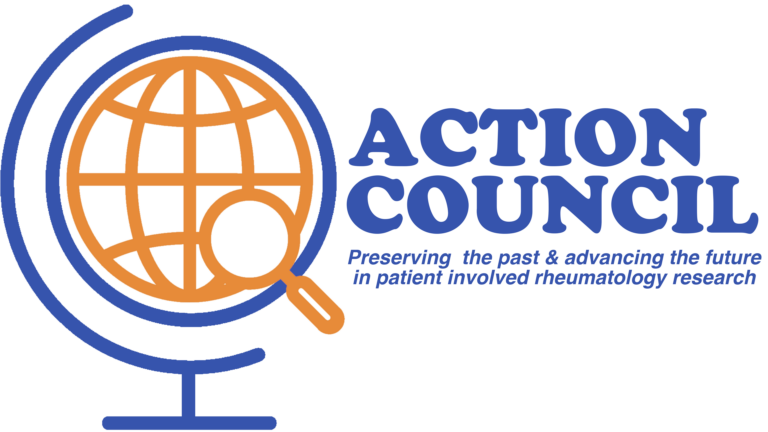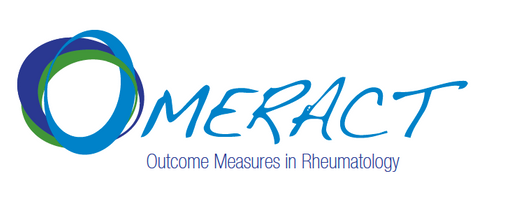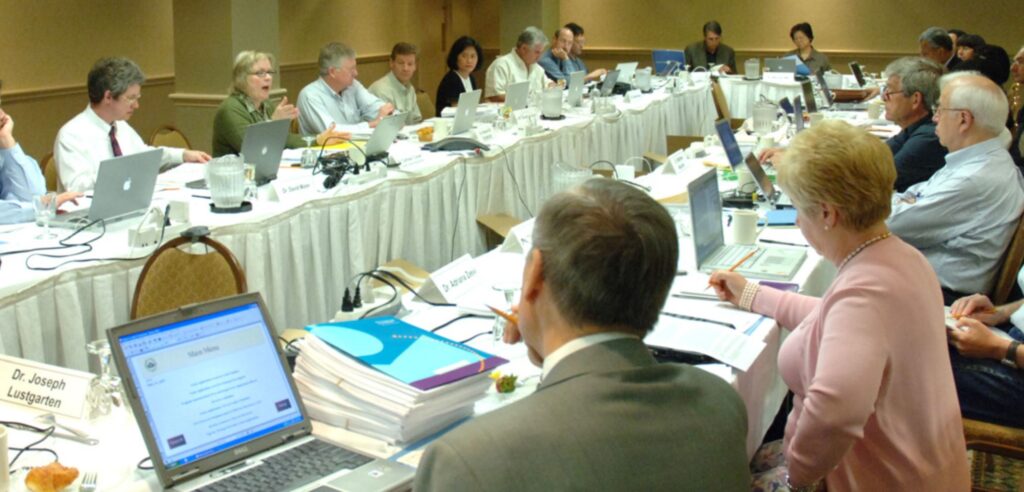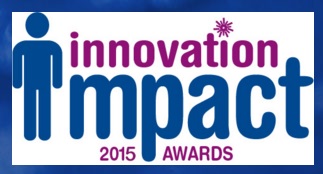Reports Pathway
Reports

Patients are invited to join the rheumatology research team
- 2002: Outcome Measures in Rheumatology (OMERACT) OMERACT is a global community for the development of Core Outcome Sets in the field of rheumatology. Patients participate as research partners in all phases of the research and are equal members in any OMERACT working group.
www.omeract.org invites patients to participate for the first time, alongside researchers and rheumatologists.
This led to the development of the CoPI Patient Research Partner (PRP) Patient Research Partner (PRP) is defined as a person with a relevant disease who participates or has participated as an active research team member on an equal basis with professional researchers, thus adding the value of experiential knowledge to a research project. established by the European League Against Rheumatism (EULAR)EULAR is the organization that represents people with arthritis/rheumatism, health professionals (HPR), and scientific societies of rheumatology of all the European nations. The aims of EULAR are to reduce the burden of rheumatic diseases on the individual and society and to improve the treatment, prevention, and rehabilitation of musculoskeletal diseases. To this end, EULAR fosters excellence in education and research in the field of rheumatology. It promotes the translation of research advances into daily care and fights for the recognition of the needs of people with musculoskeletal diseases by the governing bodies in Europe. As such, they have always had their own educational program at the annual EULAR Congress meeting, but in the earlier years, the symposia they organized was mostly independent of the other congress sessions. eular.org in 2010. See Experience Working with Patients in Research Leads to Guidance for Best Practices, 2010. Read more about the initial history of patient involvement at OMERACT ![]() .
.
CoPI: Patient Research Partner (PRP), conference participant
Tools: Report – Patient Researcher Engagement
Experience working with patients in research leads to guidance for best practices
As a few years have passed since patient engagement in rheumatology began, guidance and recommendations are developed based on lessons learned.
- 2010: Patient Research Partner (PRP): As a result of patient-researcher collaboration with Outcome Measures in Rheumatology (OMERACT) OMERACT is a global community for the development of Core Outcome Sets in the field of rheumatology. Patients participate as research partners in all phases of the research and are equal members in any OMERACT working group.
omeract.org; omeractprpnetwork.orgin 2002, Eueropean Alliance of Associations for Rheumatology European Alliance of Associations for Rheumatology (EULAR) European Alliance of Associations for Rheumatology (EULAR) is the organization which represents the people with arthritis/rheumatism, health professionals (HPR), and scientific societies of rheumatology of all the European nations. The aims of EULAR are to reduce the burden of rheumatic diseases on the individual and society and to improve the treatment, prevention, and rehabilitation of musculoskeletal diseases. To this end, EULAR fosters excellence in education and research in the field of rheumatology. It promotes the translation of research advances into daily care and fights for the recognition of the needs of people with musculoskeletal diseases by the governing bodies in Europe.
eular.org publishes recommendations for patient-researcher collaboration and defines the role of Patient Research Partner (PRP)Patient Research Partner (PRP) is defined as a person with a relevant disease who participates or has participated as an active research team member on an equal basis with professional researchers, thus adding the value of experiential knowledge to a research project.
and defines the role of Patient Research Partner (PRP)Patient Research Partner (PRP) is defined as a person with a relevant disease who participates or has participated as an active research team member on an equal basis with professional researchers, thus adding the value of experiential knowledge to a research project.
De Wit M, et al. European League Against Rheumatism recommendations for the inclusion of patient representatives in scientific projects. Annals of the rheumatic diseases 2011;70(5):722-6.
eular.org Europe - 2010: The University of the West of England (UWE)The University of the West of England (UWE) rheumatology group is involved in projects of regional, national, and global significance.www.uwe.ac.uk rheumatology group publishes a dedicated paper Patient collaboration in the design of Patient-Reported Outcome Measures: Capturing the Experience of Fatigue in Rheumatoid Arthritis
Nicklin J, et al. Collaboration with patients in the design of patient-reported outcome measures: Capturing the experience of fatigue in rheumatoid arthritis. Arthritis Care & Research 2010;62(11):1552-8. on patient-researcher collaboration in the development of a new patient-reported outcome (PRO) for fatigue in rheumatoid arthritis (BRAF). United Kingdom. Measures were updated in 2017.Bristol rheumatoid arthritis fatigue scales (BRAFS) are free to use for clinical or academic reasons.
www1.uwe.ac.uk/ - 2011: European Alliance of Associations for Rheumatology (EULAR) EULAR is the organization that represents the people with arthritis/rheumatism, health professionals (HPR), and scientific societies of rheumatology of all the European nations. The aims of EULAR are to reduce the burden of rheumatic diseases on the individual and society and to improve the treatment, prevention, and rehabilitation of musculoskeletal diseases. To this end, EULAR fosters excellence in education and research in the field of rheumatology. It promotes the translation of research advances into daily care and fights for the recognition of the needs of people with musculoskeletal diseases by the governing bodies in Europe.
www.eular.org establishes the network of Patient Research Partners and develops patient engagement Reference Cards and Background document . Europe
. Europe - 2012: INVOLVEINVOLVE, Establishment 1996 and funded by the National Institute for Health Research (NIHR) to support active public involvement in National Health Services (NHS) public health and social care research. As a national advisory group, the role of INVOLVE is to bring together expertise, insight, and experience in the field of public involvement in research (PIR), with the aim of advancing it as an essential part of the process by which research is identified, prioritized, designed, conducted and disseminated.
www.invo.org.uk publishes updated briefing notes for researchers . INVOLVE notes some of the content is drawn from earlier editions is substantially different in its content, reflecting the changing environment since the original briefing notes were written in 2004. United Kingdom
. INVOLVE notes some of the content is drawn from earlier editions is substantially different in its content, reflecting the changing environment since the original briefing notes were written in 2004. United Kingdom
CoPI: Patient Research Partners (PRPs), Public Involvement in Research (PIR)/Patient and Public Involvement in Research (PPI)
Tools: Recommendations – patient-researcher engagement; Reports – patient researcher engagement; Guidance documents – patient researcher engagement and briefing notes
Context: Guideline development, Patient-reported outcomes (PROs)
Opportunities for patient involvement in advisory panels expands
- 2011: PCOR – Patient-Centered Research Outcomes (PCOR)Established by PCORI, this research approach is a new form of comparative effectiveness research (CER) that considers the needs and perspectives of patients and stakeholders by engaging them throughout the entire research process. www.pcori.org is established by the Patient-Centered Outcomes Research Institute (PCORI)The Patient-Centered Outcomes Research Institute (PCORI) is an independent nonprofit, nongovernmental organization and was authorized by Congress in 2010. PCORI is the largest funder of comparative effectiveness research (CER) in the United States with the mandate to improve the quality and relevance of evidence available to help patients, caregivers, clinicians, employers, insurers, and policymakers make better-informed health decisions.
www.pcori.org and enlists patients to participate in clinical research grant evaluationsPCORI also engage the public through its own institutional activities, such as Merit Review, which includes patients and stakeholders as reviewers of research applications, ensuring dollars spent are aligned with research outcomes that are meaningful to the patient population. United States View other PCORI projects that included rheumatology patients in research.
- 2012: National Institute for Arthritis and Musculoskeletal and Skin diseases (NIAMS)The mission of the National Institute of Arthritis and Musculoskeletal and Skin Diseases is to support research into the causes, treatment, and prevention of arthritis and musculoskeletal and skin diseases; the training of basic and clinical scientists to carry out this research; and the dissemination of information on research progress in these diseases.
www.niams.nih.gov adds one patient to the grant application review team. - 2012: The US Department of Defense (DoD) The Department of Defense is America’s largest government agency. With our military tracing its roots back to pre-Revolutionary times, the department has grown and evolved with our nation. Our mission is to provide the military forces needed to deter war and ensure our nation’s security. www.defense.gov created the Peer Reviewed Medical Research Program (PRMRP)PRMRP is one of 35 research programs managed by the Congressionally Directed Medical Research Programs (CDMRP). Patients/survivors/individuals living with the diseases and conditions with research programs managed by the CDMRP were incorporated into all aspects of the program cycle with equal voice to include research focus, investment strategy, and programmatic review in 1993, and into peer review in 1995.
cdmrp.army.mil adds patients/individuals living with rheumatoid arthritis and osteoarthritis as peer reviewers starting in 2012 and lupus was added in 2015. In 2017, lupus became its own research program within the Congressionally Directed Medical Research Programs (CDMRP). The CDMRP is a Department of Defense (DOD) program. that receives congressional appropriations explicitly for. biomedical research in specific, congressionally identified. health matters. cdmrp.army.mil However, patients/individuals living with lupus originally participated in peer review starting in 2005 and continue doing so in the Lupus Research Program. - 2013: Establishment of Foundation for Research in Rheumatology (FOREUM)FOREUM Foundation for Research in Rheumatology is devoted to promote research in rheumatic and musculoskeletal diseases (RMDs) as an independent research funding body in rheumatology research. Basic and applied research of highest quality is supported to reduce the burden of disease for people with RMDs.
www.foreum.org, supported by the European League Against Rheumatism (EULAR)EULAR is the organization that represents people with arthritis/rheumatism, health professionals (HPR), and scientific societies of rheumatology of all the European nations. The aims of EULAR are to reduce the burden of rheumatic diseases on the individual and society and to improve the treatment, prevention, and rehabilitation of musculoskeletal diseases. To this end, EULAR fosters excellence in education and research in the field of rheumatology. It promotes the translation of research advances into daily care and fights for the recognition of the needs of people with musculoskeletal diseases by the governing bodies in Europe. As such, they have always had their own educational program at the annual EULAR Congress meeting, but in the earlier years, the symposia they organized was mostly independent of the other congress sessions. eular.org, involves patients in the government of the foundation as well as in the review of research grant applications. - 2013: The Patient-Centered Outcomes Research Institute (PCORI)The Patient-Centered Outcomes Research Institute (PCORI) is an independent nonprofit, nongovernmental organization and was authorized by Congress in 2010. PCORI is the largest funder of comparative effectiveness research (CER) in the United States with the mandate to improve the quality and relevance of evidence available to help patients, caregivers, clinicians, employers, insurers, and policy makers make better-informed health decisions.
www.pcori.org established the Advisory Panel for Patient EngagementBy inviting the patient and caregiver community to help generate research questions, review research proposals, assist in the conduct of research, help disseminate information and evaluate impact, patient engagement ensures authentic patient-centeredness in the research process. www.pcori.org which is an advisory body that provides input and recommendations to PCORI Board of Governors, Methodology Committee, and staff to help plan, develop, implement, improve, and refine efforts toward meaningful patient-centered research. Panel members assure the highest patient engagement standards and a culture of patient-centeredness in all aspects of its work. - Most pharmaceutical companies realize the need for an internal patient engagement department. The use of Patient Advisors becomes common.
CoPI: Advisory panels , consumer reviewers, Patient-Centered Outcomes Research (PCOR)
Context: Assessing grant applications, Research & Development, Patient-Reported Outcomes (PROs)
As the value of patient engagement evolves, so does guidance and outcome focus
As the decade progresses, international efforts to expand the patient voice in rheumatology research continues. As a result, more programs that focus on patient-reported needs, guidance for involving patients in research, and reports that assess patient involvement emerge.
- 2013: Patient-Centered Outcomes Research Institute (PCORI)PCORI is an independent nonprofit, nongovernmental organization and was authorized by Congress in 2010. PCORI is the largest funder of comparative effectiveness research (CER) in the United States with the mandate to improve the quality and relevance of evidence available to help patients, caregivers, clinicians, employers, insurers, and policymakers make better-informed health decisions. In addition to requiring patient and stakeholder engagement in PCORI funded research, PCORI also engages the public through its own institutional activities, such as Merit Review, which includes patients and stakeholders as reviewers of research applications, ensuring dollars spent are aligned with research outcomes that are meaningful to the patient population. www.pcori.org began the novel funding opportunity, Eugene Washington Engagement Awards ProgramThe Eugene Washington PCORI Engagement Award program, named in honor of the first chair of PCORI’s Board of Governors, is intended to bring more patients, caregivers, clinicians, and other healthcare stakeholders into the research process. The goal is to support projects that will build a community better able to participate in patient-centered outcomes research (PCOR) and comparative clinical effectiveness research (CER) and serve as channels to disseminate study results. www.pcori.org/engagement , which supports projects that will build a community better able to participate in patient-centered outcomes research (PCOR) and comparative clinical effectiveness research (CER) and serve as channels to disseminate study results. Example of award: Matching Actions to Needs: What Matters Most to the Arthritis Community?
 – Arthritis Foundation, United States
– Arthritis Foundation, United States - 2014: Canada’s Strategy for Patient-Oriented Research (SPOR)Endorses the active partnership of patients, researchers, health professionals and decision-makers in research so as to build a sustainable and accessible health care system that optimizes the health of Canadian citizens. cihr-irsc.gc.ca publishes A Resource Guide for Research Teams and Networks
 , a living guide to support researchers, decision-makers and other relevant stakeholders involved in a wide range of SPOR-related activitiesThis resource aims to:
, a living guide to support researchers, decision-makers and other relevant stakeholders involved in a wide range of SPOR-related activitiesThis resource aims to:
1) Clarify key concepts and terms relevant to involving patients in health research such as what we mean by patients, the public and stakeholders, and the different levels and types of involvement, and the rationales and perceived benefits of patient involvement
2) Describe, at a very high level, the current state of the evidence about patient engagement with respect to the effectiveness of different methods in relation
to process and outcome measures
3) Assemble in one place, a selection of resource documents collected from leading patient engagement organizations around the world to provide basic guidance for researchers about principles and methods for involving patients
in health research. - 2014: Group for Research and Assessment of Psoriasis and Psoriatic Arthritis (GRAPPA)Group for Research and Assessment of Psoriasis and Psoriatic Arthritis (GRAPPA) is organized exclusively for non-profit, educational, and scientific purposes, specifically to facilitate the sharing of information related to psoriasis and psoriatic arthritis, networking among different medical disciplines that see psoriasis and psoriatic arthritis patients, and to enhance research, diagnosis, and treatment of psoriasis and psoriatic arthritis.
www.grappanetwork.org publishes Patient Participation in Psoriasis and Psoriatic Arthritis Outcome Research report , co-authored by Patient Research Partners (PRPs)Patient Research Partner (PRP) is defined as a person with a relevant disease who participates or has participated as an active research team member on an equal basis with professional researchers, thus adding the value of experiential knowledge to a research project. After this publication, GRAPPA publishes annual patient reports through 2018.
, co-authored by Patient Research Partners (PRPs)Patient Research Partner (PRP) is defined as a person with a relevant disease who participates or has participated as an active research team member on an equal basis with professional researchers, thus adding the value of experiential knowledge to a research project. After this publication, GRAPPA publishes annual patient reports through 2018. - 2014: Cochrane Musculoskeletal Consumer Group (CMSG)Formed in 1993, enlisting patient systematic reviewers to join health care professionals and researchers belonging to Cochrane. “The feedback provides a layperson’s perspective to complement the feedback provided by our clinical experts.” musculoskeletal.cochrane.org updates recommendations to aid knowledge translation and exchange between clinicians and consumers
 .
.
CoPI: Patient Research Partners (PRPs), Patient-Oriented Research (POR), Patient-Centered Outcomes Research (PCOR)
Tools: Guidance – patient-researcher engagement; Reports – patient researcher engagement, patient engagement, and dissemination; Instruments – patient engagement
Context: Patient-reported outcomes (PROs), Clinical Effectiveness Research (CER)/decision science, dissemination/knowledge translation
Focus on expanding PCOR leads to the established of collaborative communities – United States
- 2013: PCORnet PCORnet is a national resource that offers the kind of research ecosystem that has long been pursued: a fully integrated network where vast, highly representative health data, research expertise, and patient insights are built-in and accessible from the very start. The infrastructure of PCORnet is well established, meaning that the community knows how to maximize the value of these connections to deliver fast, trustworthy answers that advance public health. pcornet.org – The era of big data, loosely defined as the development and analysis of large or complex data sets, the Patient-Centered Outcomes Research Institute (PCORI) The Patient-Centered Outcomes Research Institute (PCORI) is an independent nonprofit, nongovernmental organization and was authorized by Congress in 2010. PCORI is the largest funder of comparative effectiveness research (CER) in the United States with the mandate to improve the quality and relevance of evidence available to help patients, caregivers, clinicians, employers, insurers, and policymakers make better-informed health decisions.
www.pcori.org establishes PCORnet, bringing new opportunities to empower patients and their families to generate, collect, and use their health information for both clinical and research purposes. Through PCORnet, a “network of networks” was established– Patient-Powered Research Networks (PPRNs), built and governed by stakeholder groups focused on specific conditions and community interests. Learn more about PPRN’s .
.
Two rheumatology specific PPRN’s were developed, including:
- 2015: ArthritisPowerVisit the ArthritisPower.org website for products and/or info about how to get involved. led by CreakyJointsCreakyJoints is a digital community for millions of arthritis patients and caregivers worldwide who seek education, support, advocacy, and patient-centered research. CreakyJoints is a part of the non-profit Global Healthy Living Foundation, which receives funding from grants and sponsorships from pharmaceutical manufacturers, private foundations, and government-sponsored research grants. They frequently collaborate on research with major research institutions and universities.
creakyjoints.org. ArthritisPower is a non-profit, patient-inspired, and patient-managed research initiative that helps patients make a difference in the fight against arthritis and related conditions. View ArthritisPower overview, includes links to publications .
. - 2015: Patients, Advocates and Rheumatology Teams Network for Research and Service (PARTNERS) PARTNERS is a PPRN linking patients, family members, caregivers, researchers, healthcare providers, and other people interested in pediatric rheumatic diseases. Through PARTNERS, patients, family members, and other caregivers are able to share research ideas, work on proposals, and join study teams. www.arthritis.org/science ) – led by healthcare providers, Childhood Arthritis and Rheumatology Research Alliance (CARRA)Childhood Arthritis and Rheumatology Research Alliance (CARRA) was founded by a small group of pediatric rheumatologists who aimed to create an investigator-led collaborative research network by establishing a registry. The information is provided by the medical team and by patients and their families. The registry was created to monitor the long-term safety of the medications used to treat pediatric rheumatic diseases.
carragroup.org/, the US Arthritis FoundationThe Arthritis Foundation boldly pursues a cure for America’s #1 cause of disability while championing the fight against arthritis with life-changing resources, science, advocacy, and community connections. https://www.arthritis.org/, Friends of CARRA, the Lupus Foundation of AmericaLupus Foundation of America’s mission is to improve the quality of life for all people affected by lupus through programs of research, education, support, and advocacy.
www.lupus.org/, and a quality-improvement learning network (Pediatric Rheumatology Care and Outcomes Improvement Network, or PR-COIN)Pediatric Rheumatology Care and Outcomes Improvement Network (PR-COIN) works to improve outcomes and provide safe, effective, efficient, timely, patient-centered, and equitable care for all children with rheumatic conditions. Our goals are to increase remission and clinically inactive disease rates among children with JIA, improve quality of life including optimal physical function and pain, and support families in managing their child’s condition.
https://pr-coin.org/. View summary overview of PARTNERS .
. - 2015 PCORnet Assessment: Report evaluating the strengths and weaknesses of the initial phase dedicated to building its governance, technical, and research infrastructure. View report
 .
.
CoPI: Patient-Centered Outcomes Research (PCOR), co-production of stakeholder groups, patient-powered networks
Tools: Reports – patient research engagement
Context: Registries, patient-powered registries, children
Establishment and Evolution of the Patient-Focused Drug Development Initiative
Patient-focused drug development (PFDD) is a systematic approach to help ensure that patients’ experiences, perspectives, needs, and priorities are captured and meaningfully incorporated into drug development and evaluation. The primary goal of patient-focused drug development is to better incorporate the patient’s voice in drug development and evaluation
- 2012: The Food and Drug Administration (FDA)Food and Drug Administration’s (FDA) evaluation of new medicines (United States). During clinical trials, researchers study whether new medicines are safe and effective for patients and whether the medicine’s benefits outweigh the risks.
www.fda.gov/ established the PFDD initiative under the Prescription Drug User Fee Act (PDUFA V)2012, the US President signed into law the Food and Drug Administration Safety and Innovation Act (FDASIA) to include the reauthorization of the Prescription Drug User Fee Act (PDUFA) that provides FDA with the necessary resources to maintain a predictable and efficient review process for human drug and biologic products.
www.fda.gov. - 2016: The National Psoriasis FoundationNational Psoriasis Foundation (NPF) drives efforts to cure psoriatic disease and to improve the lives of those affected.
www.psoriasis.org a public meeting to hear perspectives from psoriasis patients, caregivers, and other patient representatives on the most significant dermal or skin-related effects of the disease. Publishes Voice of the Patient report . While attendees were not asked to focus on the arthritic component, a large percentage of comments and concerns included those with Psoriatic Arthritis.
. While attendees were not asked to focus on the arthritic component, a large percentage of comments and concerns included those with Psoriatic Arthritis. - 2017: The Arthritis Foundation
The Arthritis Foundation boldly pursues a cure for America’s #1 cause of disability while championing the fight against arthritis with life-changing resources, science, advocacy, and community connections. www.arthritis.org hosts the first externally ledExternally-led means it was not commissioned by the FDA so nonprofit organization(s) raise funds to host a meeting offsite. Patient-Focused Drug Development (PFDD) meeting for Osteoarthritis and, as a result, publishes OA Voice of the Patient ReportVisit www.arthritis.org to view videos and more information about this PFDD. You can also download the Report HERE .
. - 2017: Lupus and Allied Diseases AssociationThe Lupus and Allied Diseases Association, Inc., is an all-volunteer national non-profit dedicated to enhancing quality of life for those impacted by lupus and allied diseases and other conditions of unmet needs by fostering collaboration among stakeholders, promoting unity in the community, and participating in innovative advocacy, awareness and biomedical research initiatives www.ladainc.org , the Lupus Research AllianceThe Lupus Research Alliance is the largest nongovernmental, nonprofit funder of lupus research worldwide. The organization aims to transform treatment while advancing toward a cure by funding the most innovative lupus research; fostering diverse scientific talent; stimulating collaborations; and driving discovery toward better diagnostics, improved treatments and, ultimately, a cure for lupus. www.lupusresearch.org , and the Lupus Foundation of America unite to host an externally-led PFDD meeting for lupus. Publishes Lupus: Patient Voices reportVisit www.lupuspfdd.org to learn more about this PFDD. The full report can be downloaded HERE
 .
. - 2018 – 2019: FDA develops PFDD guidance materialsInformation and documents related to FDA’s development of the methodological PFDD guidance, including public workshops, draft guidance, and hypothetical scenarios, which are all intended to serve as a basis for dialogue.
View guidance materials at:
www.fda.gov to improve efforts to gain patient input and assessing outcomes in regulatory engagement. - 2019: FasterCuresFasterCures, a center of the Milken Institute works to build a system that is effective, efficient, and driven by a clear vision: working with our partners to build a patient-centric system where science is accelerated, unnecessary barriers are overcome, and lifesaving and life-enhancing treatments get to those who need them as rapidly as possible.
https://milkeninstitute.org publishes a guide for patient advocacy organizations interested in hosting, or are currently planning, an externally led PFDD meeting. The guide includes links to other tools for planning PFDD meetings, including the PFDD Meeting Tracker, the PFDD Readiness Assessment, and the PFDD Community Toolbox.
interested in hosting, or are currently planning, an externally led PFDD meeting. The guide includes links to other tools for planning PFDD meetings, including the PFDD Meeting Tracker, the PFDD Readiness Assessment, and the PFDD Community Toolbox.
CoPI: Patient-Focused Drug Development (PFDD), regulatory reviewers
Tools: Guidance Documents – patient-focused drug development (PFDD); Reports – patient-focused drug development (PFDD)
Context: Regulatory process, clinical trials, Research & Development, guideline development
Pharmaceutical companies get more involved in patient research collaborations
By 2015, most pharmaceutical companies had formed “patient engagement” departments and regularly enlisted the help of Patient Advocates to serve on Advisory Panels, summarizing the patient experience on behalf of the entire population. In addition to recognizing a need to include a more realistic patient sample, efforts to include patient collaboration in early drug development were also underway.
- 2015: The International Foundation for Autoimmune & Autoinflammatory Arthritis (AiArthritis)AiArthritis helps others, like us, living with autoimmune or autoinflammatory diseases that include inflammatory arthritis as a major clinical component, have a voice – alongside other stakeholders as equals – so, together, we can solve problems that impact education, advocacy, and research. www.aiarthritis.org wins an Innovation Impact award winner for their A Community Team (ACT) project
 .
.
- Addressed regulatory barriers between patients and industry
- Tested a new Concept of Patient Involvement (CoPI) where patients lead qualitative research with professionals as their advisors (Mentor Assisted ResearchMentor Assisted Research is a CoPI where patients lead various phases of research with professionals assisting as advisors.) FORWARD National Databank for Rheumatic Diseases served as a research consultant.
- Improved sample accuracy by enabling all patients to be included, regardless of prior advocacy experience, geography, or disease limitations.
- 2015: Pharmaceutical companies sit “at the table”, along with patient groups and other stakeholders, to help the Clinical Trials Transformative Initiative (CTTI)This group was organized to develop and drive adoption of practices that will increase the quality and efficiency of clinical trials.
www.ctti-clinicaltrials.org develop recommendations regarding ways patients groups (i.e., patient and disease advocacy organizations, voluntary health organizations, nonprofit research foundations, public health organizations) could be engaged in the therapy development process, particularly around clinical trials. AiArthritis referenced these recommendations, and associated CTTI tool
regarding ways patients groups (i.e., patient and disease advocacy organizations, voluntary health organizations, nonprofit research foundations, public health organizations) could be engaged in the therapy development process, particularly around clinical trials. AiArthritis referenced these recommendations, and associated CTTI tool  , as a starting point to build on additional ways to increase engagement.
, as a starting point to build on additional ways to increase engagement.
Clinical Trials: For the first time in the mid 2010’s, industry begins enlisting the help of patients, via Advisory Panels, to help develop new strategies for all phases of the Research & Development continuum, with a focus on clinical trials.
CoPI: Mentor Assisted Research (MAR), co-production of stakeholder groups, advisory panel
Tools: Reports – patient engagement
Context: Qualitative research, Research & Development, clinical trials
Rheumatology Scientific Meetings Continue to Unite Researchers, Rheumatologists, and Patients
While the European League Against Rheumatism (EULAR)EULAR is the organization that represents people with arthritis/rheumatism, health professionals (HPR), and scientific societies of rheumatology of all the European nations. The aims of EULAR are to reduce the burden of rheumatic diseases on the individual and society and to improve the treatment, prevention, and rehabilitation of musculoskeletal diseases. To this end, EULAR fosters excellence in education and research in the field of rheumatology. It promotes the translation of research advances into daily care and fights for the recognition of the needs of people with musculoskeletal diseases by the governing bodies in Europe. As such, they have always had their own educational program at the annual EULAR Congress meeting, but in the earlier years, the symposia they organized was mostly independent of the other congress sessions. eular.org has always involved patients at their annual Congress, the American College of Rheumatology (ACR)American College of Rheumatology (ACR) is a professional membership organization whose mission is to empower rheumatology professionals to excel in their specialty. They are committed to improving the care of patients with rheumatic disease and advancing the rheumatology subspecialty.
www.rheumatology.org had a slower start.
- 2016: 1st patient-centered research study group is held at the American College of Rheumatology (ACR) annual meeting.
- 2017: EULAR Standing Committee of People with Arthritis/Rheumatism in Europe (PARE)(EULAR PARE) is the Committee within EULAR comprised of representatives and musculoskeletal user groups around Europe to work together towards improving the quality of life for people in Europe living with these conditions, with the vision to empower and help them lead full and independent lives.
www.eular.org/pare initiate the EULAR study group for collaborative research. The EULAR study group meets annually during the EULAR congress and reports progress and activities through an electronic poster. The study group for collaborative research is meant to bring together physicians/researchers and PRPs. It provides a great opportunity to exchange new experiences and developments and discuss trendy topics. View meeting overview .
. - 2017: The ACR invites patients, for the first time, to present research posters.
CoPI: Patient-Centered Outcomes Research (PCOR), Patient Research Partners (PRP), conference participant
Tools: Report – patient engagement
Context: Poster presentations, study groups
Value-Based Health Care
2019: International Consortium for Health Outcome Measurement (ICHOM)International Consortium for Health Outcomes Measurement (ICHOM) aims to unlock the potential of value-based healthcare by defining global Standard Sets of outcome measures that matter most to patients and driving adoption and reporting of these measures worldwide to create better value for all stakeholders.
https://ichom.org unites an international working group – including patients – to develop the Inflammatory Arthritis Standard Set ![]() to enable health care providers to implement the value-based health care framework and compare outcomes that are important to patients with inflammatory arthritis. (Covers patients with rheumatoid arthritis, axial spondyloarthritis, psoriatic arthritis, and juvenile idiopathic arthritis.)
to enable health care providers to implement the value-based health care framework and compare outcomes that are important to patients with inflammatory arthritis. (Covers patients with rheumatoid arthritis, axial spondyloarthritis, psoriatic arthritis, and juvenile idiopathic arthritis.)
CoPI: Working groups
Tools: Guidance Documents – value-based healthcare
Context: Patient-Reported Outcomes (PROs), value-based health care, core outcome sets (COS)
Shining a Light on Health Equity, Diversity, and Inclusion
- 2020: COVID-19 brought to light many inequalities in healthcare, including disparities based on socioeconomic factors and societal structure. In the United States, the realities of systemic bias and structural racism emerged, presenting the opportunity to increase efforts to advance health equity – and work to eliminate health inequities nationwide.
- 2020: In November, for the first time at a scientific conference, the American College of Rheumatology (ACR) American College of Rheumatology (ACR) is a professional membership organization whose mission is to empower rheumatology professionals to excel in their specialty. They are committed to improving the care of patients with rheumatic disease and advancing the rheumatology subspecialty.
www.rheumatology.org/ Convergence virtual meeting included a track dedicated to diversity, inclusion, and racial disparities. Session topics and abstracts focused on unconscious bias, racial barriers to care, and LGBTQ+ community education. Persons living with rheumatic diseases were included in many presentations and actively participated in coordinating online chats.
Abstract: Impact of the COVID-19 Pandemic on Racial and Ethnic Minority Groups Diagnosed with Rheumatic Disease ![]() – Presented by the COVID-19 Global Rheumatology AllianceCOVID-19 Global Rheumatology Alliance (GRA) aims to collect, analyze and disseminate information about COVID-19 and rheumatology to patients, physicians and other relevant groups to improve the care of patients with rheumatic disease. Their vision is to bring together the global rheumatology community to curate and disseminate accurate and comprehensive knowledge to advance rheumatology care in the COVID-19 pandemic.https://rheum-covid.org/
– Presented by the COVID-19 Global Rheumatology AllianceCOVID-19 Global Rheumatology Alliance (GRA) aims to collect, analyze and disseminate information about COVID-19 and rheumatology to patients, physicians and other relevant groups to improve the care of patients with rheumatic disease. Their vision is to bring together the global rheumatology community to curate and disseminate accurate and comprehensive knowledge to advance rheumatology care in the COVID-19 pandemic.https://rheum-covid.org/
CoPI: Conference participant
Tools: Report – health equity
Contexts: Registries
Patient Involvement in Basic Rheumatology Research
While patient inclusion in rheumatology research has advanced considerably over the last decade, engagement in the basic science phase of research is lacking. However, efforts are underway to explore opportunities for patient-researcher collaboration at the laboratory setting.
- 2022: A study by the department of rheumatic diseases of the Radboud University Medical CenterRadboud university medical center specializes in patient care, scientific research, teaching and training. Our mission is to have a significant impact on health care. We aim to be pioneers in shaping the health care of the future. We do this in a person-centered and innovative way. https://www.radboudumc.nl/en/research/, which included thirteen Patient Research Partners (PRPs)Patient Research Partner (PRP) EULAR defines a Patient Research Partner (PRP) as a person with a relevant disease who participates or has participated as an active research team member on an equal basis with professional researchers, thus adding the value of experiential knowledge to a research project. explored good working models and impact of patient involvement in basic rheumatology research and to identify barriers and facilitators (report)
 . Associated road map for patient involvement in basic research also provided
. Associated road map for patient involvement in basic research also provided  .
. - 2022: With the emergence of precision medicine in rheumatology, basic scientists are exploring potential biomarkers that may be associated with diagnosis and potential worsened disease outcomes or harmful side effects. Patient groups have been collecting this research for use in efforts to influence public policy (Research AdvocacyConducting research and collecting data that can be used to influence legislation or public policy.), particularly advocating for access to biomarker testing in the future.
Tags
CoPIs: Patient Research Partners, Patient and Public Involvement in Research, Research Advocacy
Tools: Reports – Patient-researcher engagement, Guidance documents – patient-researcher engagement
Context: Basic research, precision medicine











